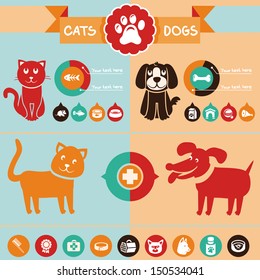Canines in daycare receive great deals of workout, socialization with various other pet dogs and distinct experiences. This can be particularly helpful for pups and pet dogs with behavioral concerns.
There are several legal considerations you require to think about when starting a doggy daycare company. These consist of the framework of your organization and conformity with federal government regulations.
1. Canine Distemper
Canine distemper is spread through direct contact with the bodily fluids and waste of a contaminated dog, but it can also be transferred by means of common water and food bowls or via air-borne beads. This very contagious illness is most harmful for young puppies, however it can affect pet dogs of any kind of age and is deadly for a lot of if left unattended.
First signs and symptoms of canine distemper commonly resemble an acute rhinitis, consisting of dripping eyes and nose with watery or pus-like discharge. As the disease progresses, a canine will develop fever, coughing, lowered cravings, throwing up and looseness of the bowels. The infection can additionally strike the nerves, causing seizures, shivering and partial or complete paralysis.
Reliable day cares decrease exposure to infection by requiring vaccinations, routine health examinations and follow strict hygiene protocols. If your pup appears excessively weary or limping, a day of rest might help him recuperate, but you must stay clear of taking him back to day care up until these symptoms clean up.
2. Kennel Cough
Kennel cough, additionally called contagious canine tracheobronchitis or Bordetella, is a very transmittable viral or bacterial condition that affects the respiratory system system. It's commonly transferred through the exchange of saliva or air beads that an ill dog exhales. Social canines are at higher danger for infection as a result of their constant interaction with each other, such as when they play, share food or water, sniff one another or simply meet in a jampacked atmosphere like a canine park or day care.
The most usual sign of kennel coughing is a relentless and strong cough that seems like something stuck in the throat or retching. Often, pet dogs will cough up frothy white phlegm. If left neglected, a dog can establish pneumonia and be at significant threat forever.
A trusted childcare facility must have stringent cleansing and hygiene procedures, sanitize all toys, food and water bowls on a regular basis, and be open about their inoculation plans. Maintaining your canine up to day on their inoculations, specifically for bordetella and canine flu, will considerably minimize their opportunities of acquiring the health problem.
3. Parvovirus
Canine parvovirus, or parvo, is a very contagious viral health problem that can be harmful for pups and young person canines with inadequate immune systems. It's most typically spread by straight contact with contaminated dog feces-- which can occur when canines sniff, lick, or preference contaminated feces-- and indirectly from polluted people, objects, or environments (like kennels, grooming areas and yards). Puppies and canines without total vaccination histories are especially at risk to parvo.
The virus is very durable, surviving in the environment for up to 9 years, and can quickly be transferred in between dogs by contact via feces or on footwear, garments, and bed linen contaminated with parvovirus. Otherwise dealt with promptly with IV liquids, electrolyte balance, throwing up control medicines and anti-biotics to stop additional bacterial infections, a pet will quickly dry out and develop extreme looseness of the bowels, dog board and train near me which causes shock and sepsis. Parvo is challenging to heal when a pet has actually come to be ill, but with ideal vet care, lots of young puppies do survive this ailment.
4. Pooch Flu
Pooch influenza virus is highly infectious and spreads via straight contact, sharing food and water bowls, licking or nuzzling other canines, via air-borne beads, and with polluted surfaces. Vaccination is effective in minimizing the risk of infection and episodes.
A lot of impacted canines establish a moderate respiratory infection with a cough that lasts 1-3 weeks. They might also have nasal and eye discharge, sneezing, and lethargy. Several of the most serious situations result in pneumonia and a high fever.
If your pet dog exhibits any of these signs and symptoms, do not bring them back to day care till they are healthy. If your pet is showing indications of severe fatigue or hopping, talk to your vet right away and make certain they get on health supplements to aid develop their resistance. A veterinarian will evaluate your dog for symptoms of the flu by taking a sample from the nose or throat, and blood tests can be done to confirm.
